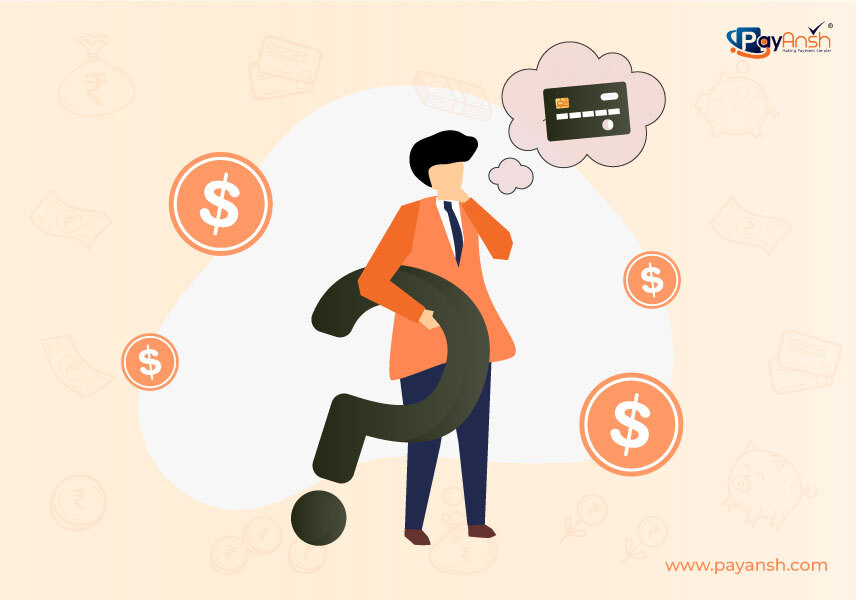Whenever any household buys s
January 01, 2023What Would Happen If You Don’t Use Your Credit Card?

Our financial life now can't function without credit cards.
They provide a number of advantages and rewards due to their practicality and
simplicity of usage. Have you ever thought about what would occur if you chose
to stop using your credit card altogether? Would there be any negative effects?
We'll talk about the possible results and effects of not using your credit
card.
Many people have many credit cards, some of which they use
infrequently or never. There are times when credit cards are not used, whether
it's because of prudent personal money management practices or a move towards
alternate payment options. Despite the fact that it could appear unimportant,
there are a number of things to take into account that could have an effect on
your credit history, credit score, and general financial health.
We will explore the possible consequences of not using your
credit card in this talk, including how it may affect your credit utilisation
ratio, length of credit history, and creditworthiness. We'll also discuss any
potential repercussions for your own finances and how having inactive credit
cards may impact your future capacity to acquire credit.
Additionally, we'll look at several approaches to managing
your credit cards wisely, such as using them strategically, keeping a balanced
mix of credit, and realising the value of the periodic activity to maintain a
good credit profile.
You may be more in control of your financial destiny by
being aware of the potential repercussions of not using your credit cards. We
hope to arm you with the information needed to use credit cards sensibly by
examining the many consequences and circumstances.
Join us as we explore the potential effects and highlight
the significance of active credit card management if you've ever wondered what
would happen if you didn't use your credit card and want to better understand
how it may affect your financial health.
Due to inactivity, Your Card May Be Closed or Limited
When you don't use your credit card for a while, your credit
card provider may, without warning, lower your credit limit or close your
account. How long, I hear you ask? There is no set period of inactivity after
which an account will be closed. To be cautious, anticipate that any period of
inactivity lasting longer than a month may result in the deletion of your
account or a reduction in your credit limit.
Remember that the card issuer is not required to notify you
prior to reducing or eliminating your credit line. They may do one or both
without warning, but you should still hear from them to let you know about the
changes made to your account.
Your credit rating might be impacted
You could dismiss the closure of an account by your credit
card company since you weren't using it anyhow, but it can have a big financial
impact and shouldn't be disregarded.
Your credit history could become more recent
Your credit history is used to determine a percentage of
your credit score. Losing a credit account, particularly one that has been open
for a while, might lower your overall credit "age," which is a
measure that potential lenders use to determine if you're a good risk.
Your credit-to-debit ratio can increase
Your credit utilisation, which is the second-most
significant factor in determining your credit score, shows how much of your
available credit you are currently utilising. Your credit utilisation rate will
probably rise if your card provider terminates your account, which might lower
your credit ratings because you will suddenly have less accessible credit. It's
advised to keep your credit utilisation below 30%; individuals with excellent
credit often have 10% or lower utilisation.
How long until a credit card is closed if you don't use it?
As to when - or even if - a lender would shut your account
after a period of inactivity, there are no unbending industry regulations or
guidelines. A month or two of inactivity on your credit card shouldn't cause
you any anxiety, but if it has been longer than that, you should inquire with your
issuer about their policies to prevent a sudden closure.
Dlugozima claims to have had credit cards that were
cancelled by the issuer after only six or twelve months of inactivity. But they
continued giving him additional cards, practically urging him to start using
them because he had another card that he didn't use.
According to Jacob, an issuer won't be in a rush to cancel
an unused card. They will leave it open, she claims. "That's their
prerogative."
Conclusion
Despite these possible negative effects, it's crucial to
remember that actively utilising credit cards necessitates sound money
management. A good credit profile is maintained by carefully examining your
spending patterns, paying off obligations in full, and living within your
means.
In conclusion, not using your credit card can result in a
number of negative effects, such as inactivity penalties, the forfeiture of
rewards, the possibility of having your credit limit decreased or your account
closed, effects on your credit utilisation ratio, a lack of credit history,
diminished creditworthiness, and an increased risk of fraud. By being aware of
these possible results, you'll be better able to manage your credit cards
wisely and keep your credit score high.
.png)
.jpg)
.jpeg)
.jpg)
.jpg)